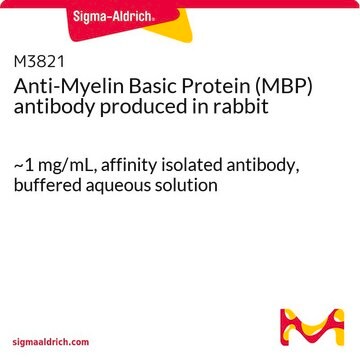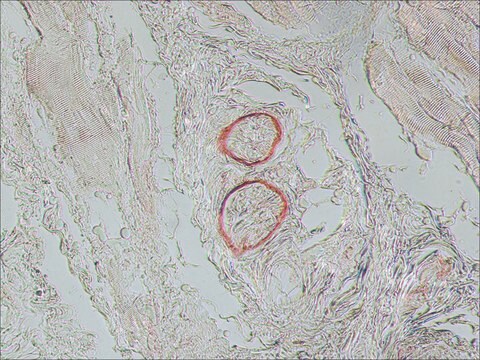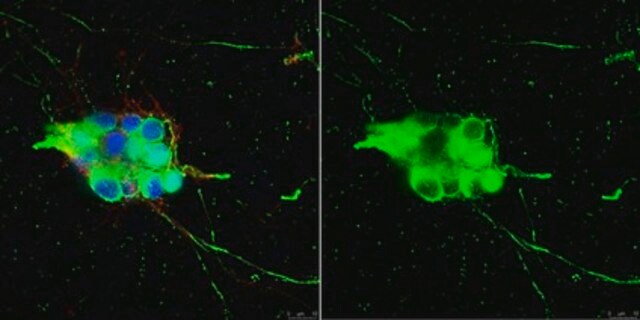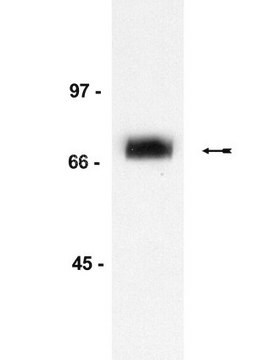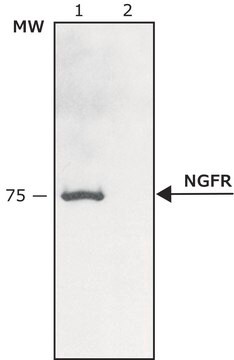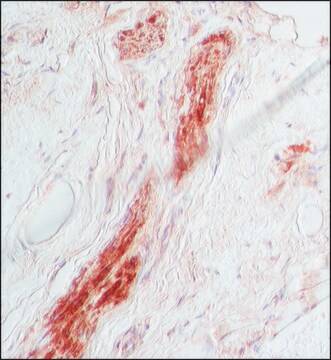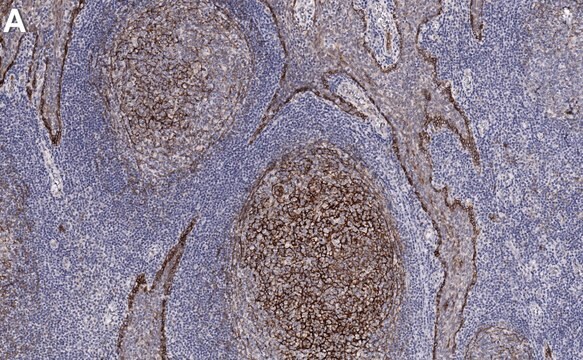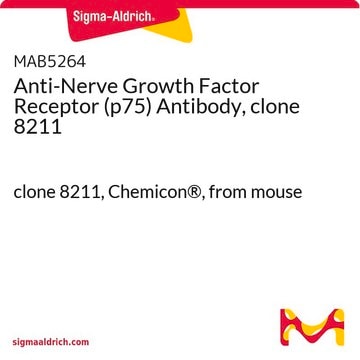07-476
Anti-p75NTR (Neurotrophin Receptor) Antibody
Upstate®, from rabbit
Synonym(s):
CD271 antigen, Low affinity neurotrophin receptor p75NTR, Low-affinity nerve growth factor receptor, NGF receptor, low affinity nerve growth factor receptor, nerve growth factor receptor, nerve growth factor receptor (TNFR superfamily, member 16), p75 IC
About This Item
Recommended Products
biological source
rabbit
Quality Level
antibody form
purified immunoglobulin
antibody product type
primary antibodies
clone
polyclonal
species reactivity
human, mouse, rat
manufacturer/tradename
Upstate®
technique(s)
immunohistochemistry: suitable
immunoprecipitation (IP): suitable
western blot: suitable
isotype
IgG
NCBI accession no.
UniProt accession no.
shipped in
dry ice
target post-translational modification
unmodified
Gene Information
human ... NGFR(4804)
General description
The neurotrophins are comprised of four proteins, all of which bind to the LNGFR: Nerve Growth Factor (NGF), Brain Derived Neurotrophic Factor (BDNF), Neurotrophin-3 (NT-3), and Neurotrophin-4 (NT-4).
Nerve growth factor, the prototypical growth factor, is a protein secreted by a neuron′s target. NGF is critical for the survival and maintenance of sympathetic and sensory neurons. NGF is released from the target cells, binds to and activates its high affinity receptor (TrkA), and is internalized into the responsive neuron. The NGF/TrkA complex is subsequently trafficked back to the cell body. This movement of NGF from axon tip to soma is thought to be involved in the long-distance signaling of neurons.
Specificity
Immunogen
Application
This antibody has been reported by an independent laboratory to immunoprecipitate p75 neurotrophin receptor.
Immunohistochemistry:
This antibody has been reported by an independent laboratory to detect p75 neurotrophin receptor in rat brain sections. (Roux, P., 1999)
Neuroscience
Neurochemistry & Neurotrophins
Quality
Western Blot Analysis:
0.1-0.5 µg/mL of this antibody detected p75 neurotrophin receptor in RIPA lysates from PC-12 cells.
Target description
Physical form
Storage and Stability
Analysis Note
Brain tissue.
Other Notes
Legal Information
Disclaimer
Not finding the right product?
Try our Product Selector Tool.
Storage Class Code
10 - Combustible liquids
WGK
WGK 1
Certificates of Analysis (COA)
Search for Certificates of Analysis (COA) by entering the products Lot/Batch Number. Lot and Batch Numbers can be found on a product’s label following the words ‘Lot’ or ‘Batch’.
Already Own This Product?
Find documentation for the products that you have recently purchased in the Document Library.
Our team of scientists has experience in all areas of research including Life Science, Material Science, Chemical Synthesis, Chromatography, Analytical and many others.
Contact Technical Service